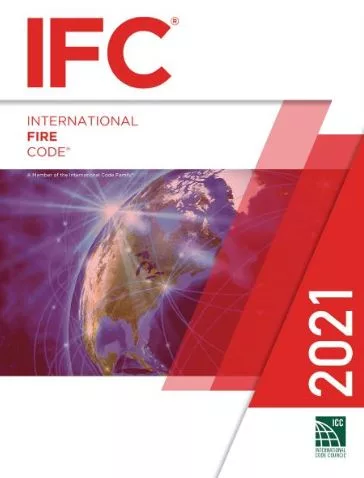As mentioned in a previous post, there were some major changes to the 2021 and new codes affecting distilleries. One of these major changes were how barrel storage is classified and treated.

IFC Chapter 40
2021 IFC (International Fire Code) added a whole new chapter 40 , Storage of Distilled spirits and wines. The chapter provides more specific requirements for distilled spirits in barrels and casks.
This chapter clarifies that chapter 50 and 57 of the IFC do not apply to barrel storage. On previous codes, chapters 50 and 57 were already exempt. While chapter 40 does attempt to clarify and condense rules around barrel storage, it also adds some more confusion, such as secondary containment requirements, that will hopefully be more clarified in the future.
Now barrel storage is an S-1 Occupancy
IBC 307.1.1-19 states that the storage of distilled spirits in barrels and casks, that conform with the requirements of the IFC, is not classified as an H-3.
Barrel storage is now S-1 occupancy, which is clearly stated in the IBC, and reiterated in the IFC.
Note that distillery areas besides barrel storage (if exceeding MAQ’s) is not clearly classified as another occupancy besides H-3, and still may be an H-3 occupancy, depending on AHJ determination. This is due to the fact that the MAQ chart in chapter 50 of the IFC applies (exempt for barrel storage), and this chart tells us that occupancy shall be H-3 if exceeding MAQ’s.
With a barrel storage occupancy now being S-1, it allows for much larger space/ much larger barrel storage buildings, even with wood framing.
Secondary Containment
This one is a point of muddiness for chapter 40. In 2018 and previous codes, barrels were simply exempt from containment (via being exempt from chapters 50 and 57). Now, in 2021 IFC’s chapter 40, they add back in secondary containment requirements, but the rules are not concise or clear. The containment passage, and associated commentary are as follows:
4003.1 Spill control.
Drainage or containment systems shall be provided by means of curbs, scuppers, special drains or other suitable means to prevent the flow of spills throughout the building.
❖ Any liquid spills due to container breakage or leakage are required to be contained within the storage area by one of the means listed. Note that there are no specific criteria given for the amount that has to be contained, just that it cannot be allowed to flow outside of the storage area. However, regardless of the means of spill control installed to meet this section requirement, the intent is that spills are to be contained in the storage area and then removed or drained from the area. In addition, the ventilation requirement of Section 4003.2 is to be met, and Section 315.3 requires that all storage of materials in buildings be orderly and stacks be stable.
The main issue, is that the code offers no amount to be contained. If we went off chapter 50/57 rules, it would be the single largest vessel, plus 20 minutes sprinkler water, which tends to be quite a large volume needing to be contained. If we only consider one 55 gallon barrel, and not sprinkler water, its much more manageable, but we still have to consider how its done, via curbs that can get in the way of forklifts,
This section requires interpretation/ approval from the AHJ.
Ventilation
Chapter 40 (4003.2) states that ventilation should either be 1 cfm per sf, or maintain under 25% of the LFL. In most situations, we would recommend utilizing the 25% of the LFL, as this will be a much lower rate of ventilation and dry your barrels out less, and use less energy. This can be resolved with some calculations based on industry standard known evaporation rates from barrels.
Other Provisions
Chapter 40 also provides some other, basic provisions. Much of these were applicable anyway, but, the chapter consolidates and clarifies the important requirements for barrel storage. This includes:
-No Smoking Signs
-Hazmat identification signage
-Special listings for industrial powered trucks (forklifts)
-Lightning protection
-Mandating sprinkler systems in all circumstances for barrel storage
-Providing proper portable fire extinguishers